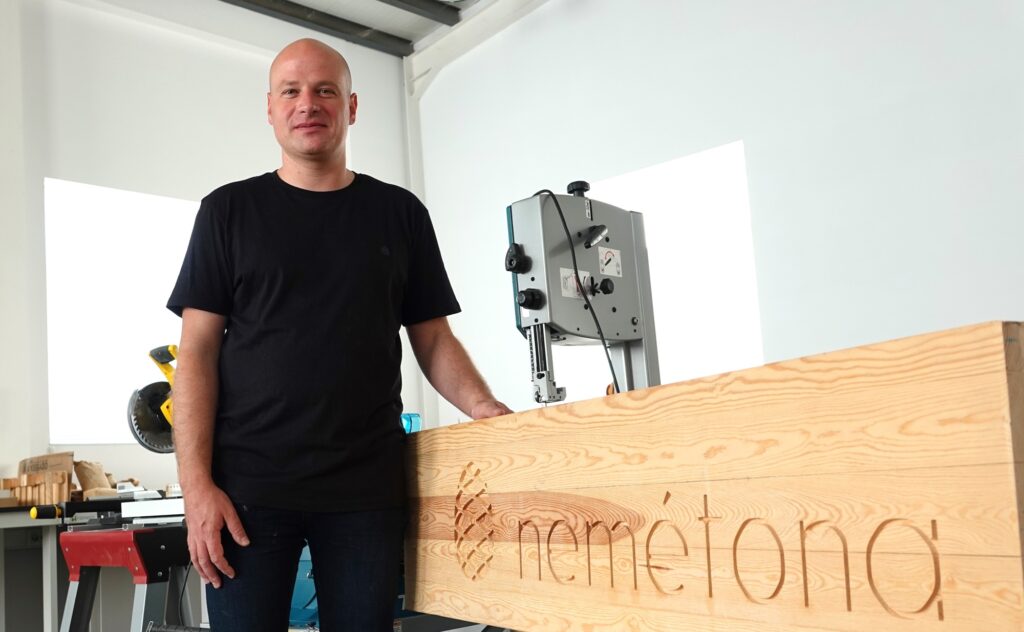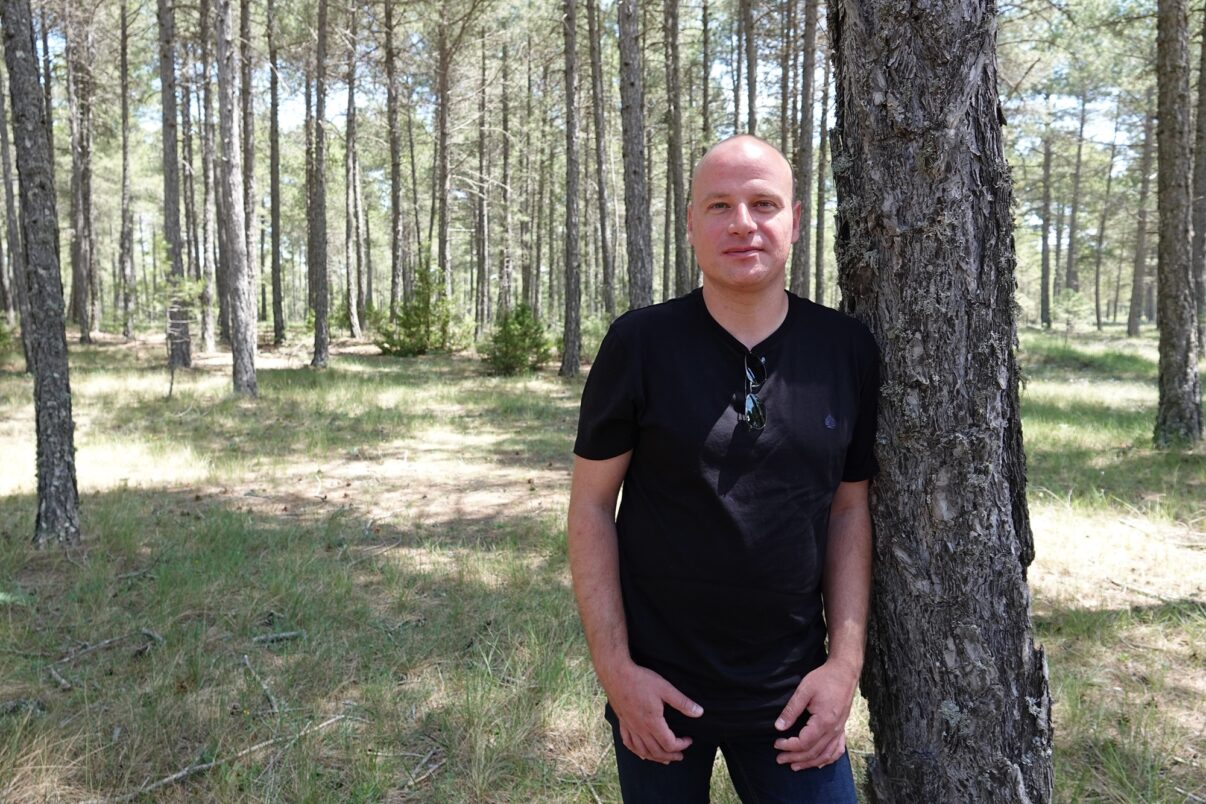The Cuenca-based company gets a 100,000-euro loan from the Rewilding Europe Capital programme to produce technical structural timber solutions for buildings, using native black pine to promote bio-construction and sustainable forest management in the region.

Nemétona was founded by Álvaro Tarancón, a young entrepreneur based in Cuenca who has just received a 100,000 euros loan from the Rewilding Europe Capital programme (REC) and who is leading a pioneering project in different aspects. Thanks to this financial support, the company aims at turning the native black pine (Pinus nigra) forests of Cuenca province into a reference for the bio-construction sector.
The REC loan will be invested in the machinery for a new manufacturing plant that will produce structural technical wood systems, including, beams, laminated wood panels and innovative later cross-laminated timber (CLT) with local black pine timber.
CLT is an innovative material with a growing demand in Spain that is not currently fully covered by the national supply. Nemétona’s plan is to become the first company to manufacture CLT in Spain with local black pine, the most abundant and characteristic conifer tree in the forests of Serranía de Cuenca region. In contrast to CLT manufactured with imported timber and the carbon footprint that this entails, Nemétona will use zero kilometre wood which, in addition to a lower environmental impact, will facilitate a higher value of this raw material, which should bring higher profitability to the value chain. In this way, the company aims to promote sustainable forest management in the region, by favouring the sale of larger volumes of timber in a controlled manner, thus avoiding excessive forest density and potential associated pests, and minimising the risk of fires.

“Cuenca hosts Europe’s most resistant conifer, but it is being used for pallets, woodchips, pellets or pulp, low-technified products with little added value, so they leave little profitability for local owners and sawmills. On the other hand, if the final product for which it is used is of high value, timber will bring more profitability and will be easier to market,” says Álvaro Tarancón.
Nemétona’s innovative perspective is reflected not only in its commercial portfolio, but also in the vision of its role in the landscape. The company is currently exploring where to set up its first production plant in different locations in the Serranía de Cuenca region and plans to create up to 25 jobs in the first two years.
Beyond producing innovative and sustainable materials targeting the emerging sustanible building market niche in Spain, Nemetona’s overall mission also addresses “the demographic, environmental and social challenge in this region. We want to work with small landowners, local sawmills and partners who can grow with us”, explains Álvaro Tarancón, who is also the company’s CEO.
First REC loan for a timber production company
Rewilding Europe Capital is the division of Rewilding Europe dedicated to fund nature-based initiatives to boost socio-economic development in the landscapes. It provides advice and low-interest rate loans with long repayment periods to businesses located in areas where rewilding initiatives are being carried out, such as the Iberian Highlands. In this landscape, Rewilding Spain is the organisation in charge of identifying business initiatives that can benefit from these loans, managing the applications and facilitating the whole access process.

So far, Rewilding Spain has provided grants from the REC programme totalling 213,000 euros, which have benefited three business initiatives, Parque de Fauna La Maleza (Sierra de Albarracín in Teruel province), Del Bosque a tu Casa (Alto Tajo region in Guadalajara province) and Nemétona (Cuenca province).
Supporting Nemétona is also a pioneer for the REC programme itself, as it is the first time it benefits a timber production company.
Basilio Rodríguez, Enterprise Manager at Rewilding Spain, highlighted the importance of the Rewilding Europe Capital programme support for an industrial activity in the timber sector such as this one. “It is a great example of how our rewilding initiative takes into account the specific needs of each landscape and how we make economic development and sustainable forest management compatible. In this case, we are favouring the revaluation of wood and its use in a more environmentally sustainable way. Using timber for building is a way of storing carbon and avoiding emissions and it makes perfect sense to support this sector in Cuenca province, which is home to one of the most important forest areas in Spain.”
Want to know more?
Safari Rewilding La Maleza: rewilding and ecotourism go hand in hand
